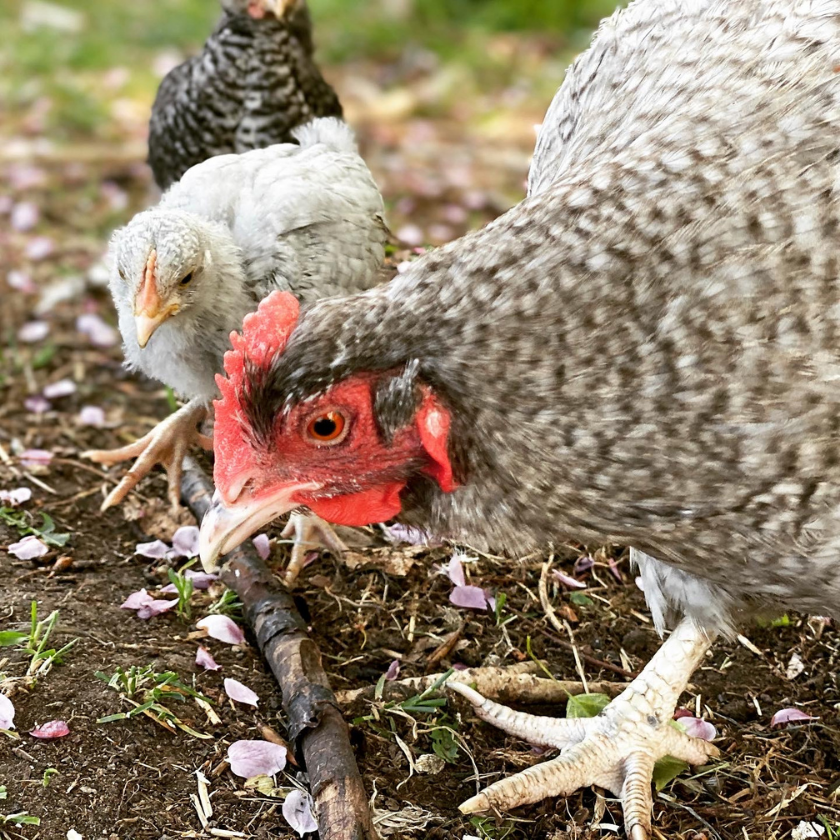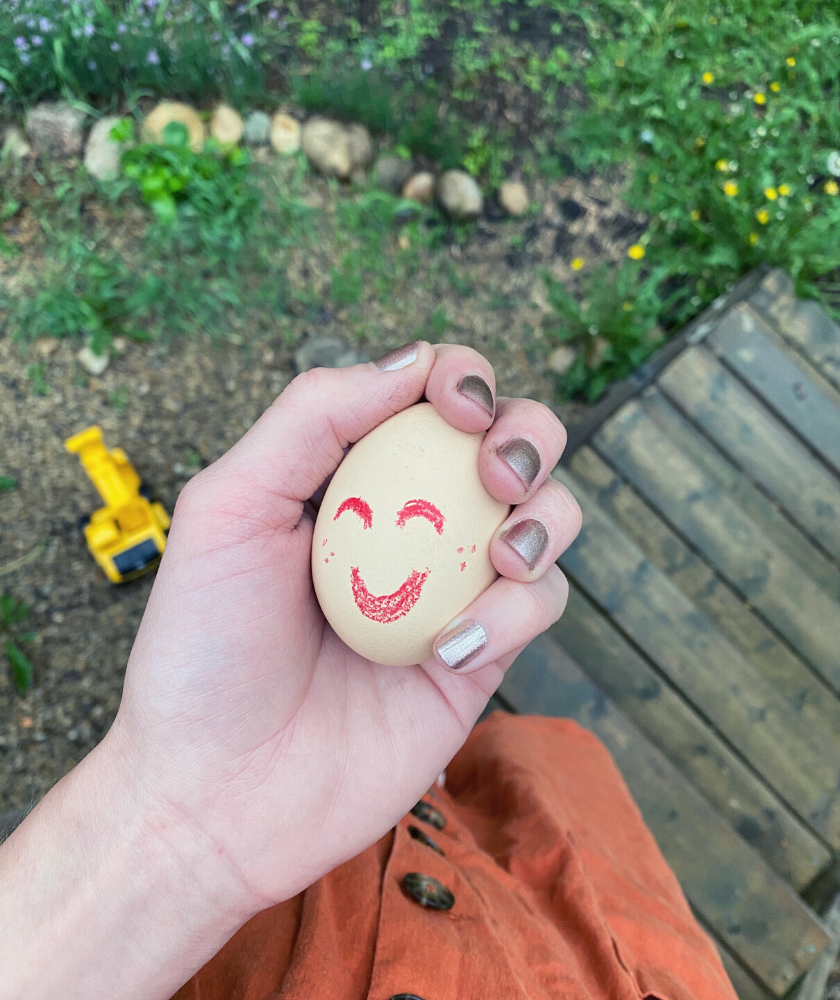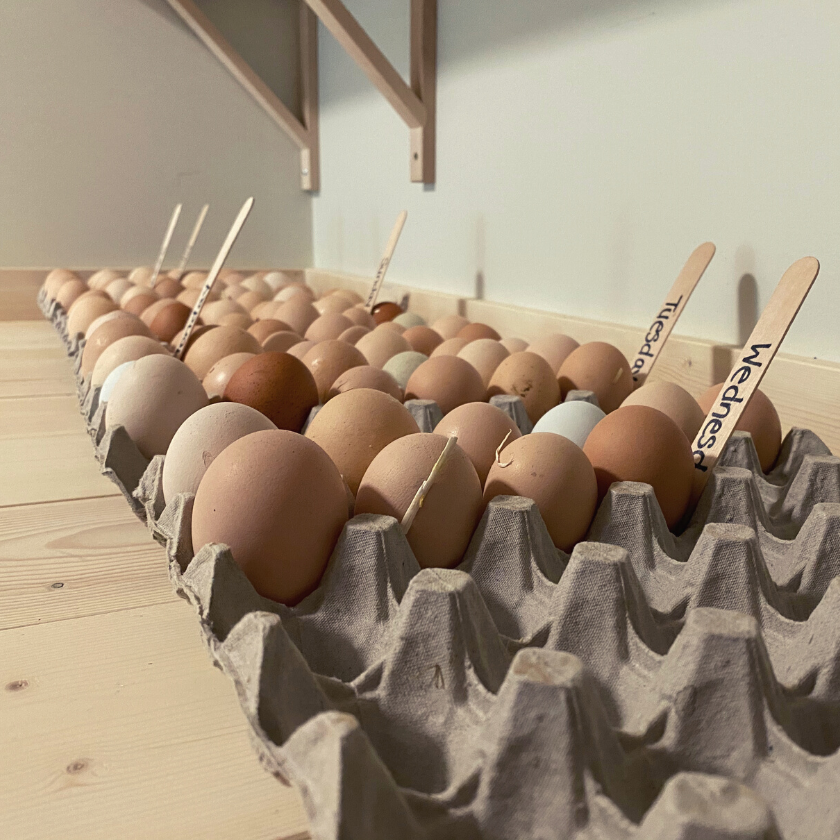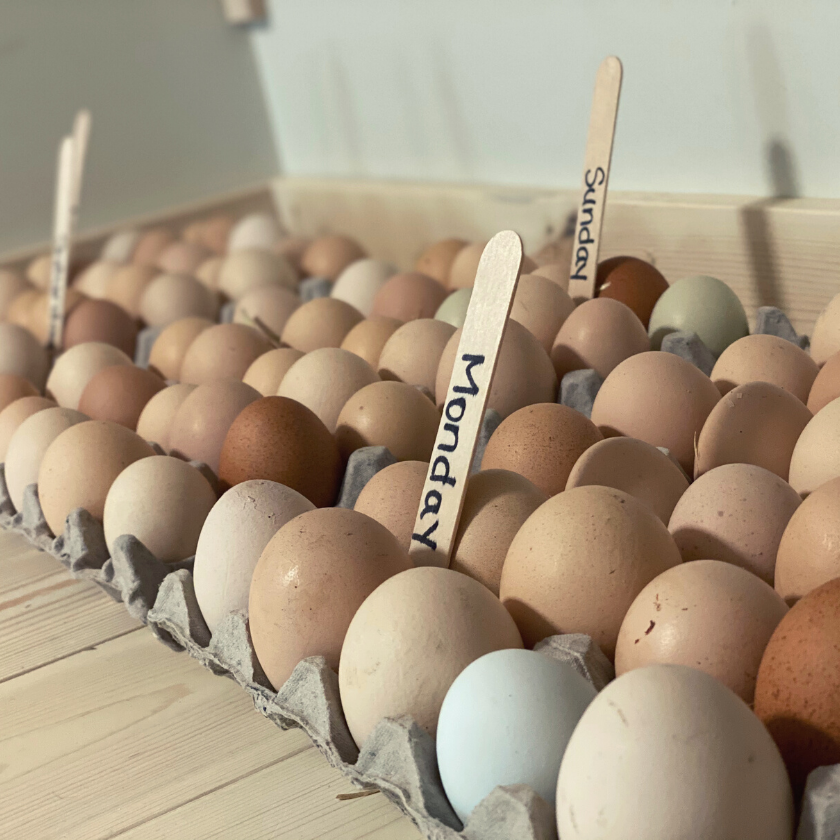Are you like me and thought you could never have a pretty display of colourful eggs for all to see on your pantry shelf? Well, join the “Unrefridgerated Food Might Kill Me Club”. It took me a while to get used to the idea of leaving the fresh eggs out in the pantry. All the eggs here in Canada get washed, stamped with a “best before date”, and put in the refrigerator. Better yet if they are the exact same size, and the exact same color, too.
Well my friends… I am here to tell you, that I am alive and well after eating eggs stored at room temperature . I’m speaking to my fellow Canadians here because we’re weirdos (whoop whoop) about food safety.
In places like Europe and Africa, it’s normal to keep unwashed eggs at room temperature. In Europe it is actually illegal to wash eggs, and recommended to keep eggs cool, but not refrigerated. I experienced this myself when I spent some time in Zimbabwe, Africa. I was shocked that they kept their eggs, and cheese in the pantry.
(You know what else is shocking? My resemblance to this egg.)
So what’s the big stink about refrigerating eggs?
We’re all terrified of Salmonella. In the US and Canada they get washed with special salmonella-killing-soap, and refrigerated to halt salmonella growth. This removes the protective coating on the outside of the shell called the cuticle, or “bloom”, which prevents moisture and bacteria from entering the shell. Washing eggs, also doesn’t do anything about Salmonella that may already be present inside the egg (and that’s what’ll usually give ya the gurgle-y guts).
In Europe, where it is illegal to wash eggs, the chickens are vaccinated against Salmonella, and eggs are not refrigerated. An unwashed egg that is stored in the fridge can cause mildew growth and contamination.
What to do about that silly Salmonella?
If you’re a homesteader like me, and you’re taking good care of your chickens, then you probably don’t need to worry too much about Salmonella. Our chickens are set up with a good immune system by spending lots of time outside, foraging, dust bathing, and socializing. They have a clean safe place to lay their eggs, and a clean spacious place to perch at night.
Our own immune systems are kept strong by prioritizing a healthy diet, getting lots of rest, being mindful with our attention, and not sterilizing everything that we come into contact with.
My baby was just laying on the grass while I worked in the garden next to him. I stopped every few minutes to dig the dirt, leaves, sticks (and who know what else), out of his mouth. I didn’t worry one bit, because the gut flora diversity he gained from that experience is better Salmonella immunity than any vaccinated, or bleached chicken egg (in my opinion). I also fed him an unwashed, unrefrigerated, unvaccinated (but cooked) egg for breakfast that day.
The kids are also encouraged to lick the odd shopping mall handrail, for an extra immunity boost.
Totally kidding. Chill.
When do you need to refrigerate eggs?
We refrigerate our eggs in the winter. This is because we don't heat our coop, and the eggs cool off very fast. They will also freeze if we don’t collect them right away. When it’s -40C, the eggs can freeze almost instantly. So you can see why it would be a bad idea to let them warm up to room temperate. Once the eggs are cold. Keep them cold.
We will occasionally get the odd poopy egg. I wash the poopy eggs, put them in the fridge and use them right away.
Another time you might need to refrigerate your eggs is if they are fertilized and your climate is very hot. In this case, an egg could start to develop, and then probably stop…unless the moisture and temperature in your house happen to be perfect for 21 days and you stop by every now and then to turn them like a little mother hen…
THE BEST WAY TO STORE FARM EGGS:
There is about 2 dozen eggs rolling in here every day. After learning how unnecessary it is to keep eggs in the fridge, we save the space, and keep them in the pantry. They’re cuter that way, too.
This is our favourite system for storing unwashed eggs in the pantry, during spring, winter, and fall.
On our pantry shelf we line up 30-egg-carton flats. After collecting the eggs, we add them from left to right.
Store the eggs pointy side down, so the air bubble in the egg is at the top. This way the bubble doesn't have to glug it's way up through the egg.
Then, we tuck a popsicle stick with the day of the week marked on it, behind the last egg of the day.
When we use the eggs we take from left side.
Take from the left, add to the right.
When we run out of room, we cycle back to the beginning.
Eggs stored this way will stay fresh for weeks. They don't last that long in our house because we use them, or freeze them while they’re still their freshest little selves.
Check out our YouTube video if you’d like to see how we do this egg storage thing, and how I’m freezing eggs to eat in winter when production slows down.
Do you keep your eggs refrigerated all year? Or, do you keep them on the counter? Let me know what part of the world you are from!
*Disclaimer: If you get sick and/or die, loose money, have hurt feelings, or any other kerfuffle from an egg related incident, or from anything I have said - it is not my fault. This is our experience, opinions and ideas about egg storage, based on our own research. Refrigerate your eggs, or don’t, it’s your choice. I’m not yolking around here.
Originally posted here: https://hive.blog/hive-120078/@alexanderfarm/the-best-way-to-store-farm-eggs-in-my-humble-opinion








No comments:
Post a Comment